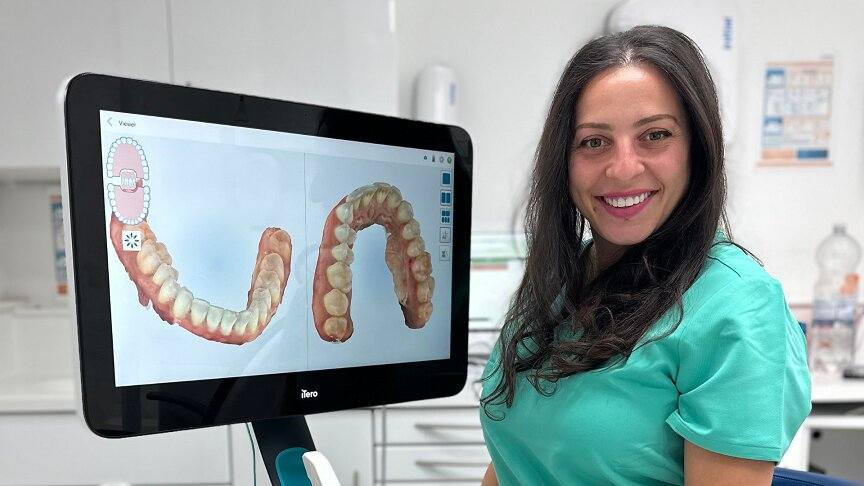If you’ve been told you need a root canal, you might feel nervous or unsure about what’s involved. Many people associate the term with pain, but in reality, a root canal is a modern, effective way to save your natural tooth and relieve discomfort.
In this comprehensive guide, we’ll explain what root canal treatment is, why it’s needed, how it works and what to expect — plus how Whites Dental, with dental clinics for root canal treatment in Waterloo (SE1) and Marble Arch (W2), provides expert, gentle care to make the process stress-free.
What Exactly Is A Root Canal?
A root canal (or endodontic treatment) is a dental procedure used to remove infection from inside a tooth. The infection occurs in the pulp — the soft tissue inside your tooth that contains nerves and blood vessels.
When decay, trauma or deep fillings reach this area, bacteria can enter and cause infection. If left untreated, the infection can spread, leading to abscesses, pain, and eventually tooth loss.
A root canal cleans out the infected tissue, disinfects the area, and seals the tooth to prevent further infection — allowing you to keep your natural tooth for many years.
When Do You Need Root Canal Treatment?

Root canal treatment is typically recommended when:
- You experience severe toothache that worsens when chewing
- The tooth becomes sensitive to heat or cold
- There is swelling or tenderness near the affected area
- You notice discolouration or darkening of the tooth
- An abscess forms (a small bump or swelling on the gum)
Sometimes, there are no symptoms at all — only your dentist can detect the issue through X-rays or testing.
If infection is confirmed, a root canal is often the only way to save the tooth without extraction.
The Root Canal Procedure – Step By Step
At Whites Dental, we aim to make every root canal procedure as comfortable, precise, and stress-free as possible. Here’s what typically happens during treatment:
1. Diagnosis And Planning
- A clinical exam and digital X-rays help identify the infected area.
- Your dentist explains the findings and discusses your treatment options.
- Local anaesthetic is applied to the area by the dentist to ensure the patient doesn’t feel pain.
2. Cleaning The Root Canals
- A small opening is made in the tooth to access the pulp.
- Infected tissue is removed using fine rotary instruments.
- The inside of the canal is disinfected to eliminate bacteria.
3. Sealing The Tooth
- The cleaned canals are filled with a biocompatible material called gutta-percha.
- The tooth is sealed with a temporary or permanent filling to prevent reinfection.
4. Restoring The Tooth
- In most cases, a dental crown is fitted to strengthen and protect the tooth.
- This ensures durability and restores natural function and appearance.
⏱️ The procedure usually takes 1–2 visits depending on the complexity of the tooth.
Why Root Canal Treatment Is Important
Delaying or avoiding a root canal can lead to serious complications:
- Spread of infection to nearby teeth or bone
- Severe pain or abscess formation
- Tooth loss, which can affect chewing and alignment
- Need for costly replacements such as implants or bridges
A successful root canal saves your natural tooth and prevents the need for extraction — which is almost always the better long-term option.
Common Myths About Root Canals

There are many misconceptions about root canals. Let’s separate fact from fiction:
| Myth | Reality |
|---|---|
| “Root canals are painful.” | Modern root canal treatment is virtually pain-free thanks to advanced anaesthetics and techniques. |
| “It’s better to extract the tooth.” | Saving your natural tooth is healthier and more cost-effective than replacing it. |
| “The infection can come back.” | With proper care and restoration, success rates exceed 90–95%. |
| “It takes many visits.” | Most cases are completed in one or two appointments. |
At Whites Dental, we use state-of-the-art equipment to ensure accuracy, comfort, and a calm experience.
The Science Behind Root Canal Treatment
Each tooth root contains one or more root canals that house nerve tissue and blood vessels. When the pulp becomes infected or dies, the body cannot repair it naturally.
During treatment:
- Rotary instruments gently shape and clean the canals.
- Irrigation solutions remove bacteria and debris.
- The canal is dried, filled, and sealed to prevent re-infection.
Modern root canal techniques preserve as much healthy tooth structure as possible, ensuring strength and longevity.
How Much Does Root Canal Treatment Cost
The cost depends on the complexity of the case and whether it’s treated via the NHS or privately.
NHS Root Canal Treatment
- Band 2 cost: £70.70 (2026 rate)
- Covers exam, X-rays, and treatment
- Limited to cases a general NHS dentist can manage
Private Root Canal Treatment (Typical London Prices)
- Front tooth: £350 – £650
- Premolar: £450 – £750
- Molar: £550 – £750
- Re-treatment: £650 – £1,200
While private dental care costs more, it offers faster access, specialist expertise and advanced technology, leading to higher success rates and longer-lasting results.
NHS Vs Private Root Canal – Key Differences
| Feature | NHS | Private |
|---|---|---|
| Cost | £70.70 Band 2 | £350–£950 |
| Waiting Time | Weeks–months | Often same week |
| Complexity | Basic cases only | All cases, including molars & re-treatments |
| Equipment | Standard tools | Microscopes & digital imaging |
| Comfort | Shorter visits | Personalised care & sedation options |
| Success Rate | Good | Excellent (90–95%) |
At Whites Dental, our private dentists in London provide private root canal care with comfort, precision and attention to detail — ensuring the best possible outcome.
Aftercare: How To Look After Your Tooth Post-Treatment
After a root canal, your tooth will feel slightly tender for a few days, but this is temporary. Follow these steps for a smooth recovery:
- Take pain relief if needed (as advised by your dentist).
- Avoid chewing hard foods on the treated tooth until the crown is placed.
- Maintain excellent oral hygiene – brush twice daily and floss gently.
- Attend your follow-up appointments for crown placement and check-ups.
Once fully restored, your tooth should function and look completely natural.
How To Prevent The Need For A Root Canal
Prevention is always better than cure! Reduce your risk with these simple tips:
- Brush and floss daily to prevent decay
- Limit sugary snacks and drinks
- Visit your dentist regularly for check-ups
- Wear a mouthguard during sports to prevent trauma
- Avoid ignoring tooth sensitivity or pain — early treatment saves teeth
Why Choose Whites Dental For Root Canal Treatment In London
At Whites Dental, we combine advanced technology with patient-centred care to make root canal treatment calm and predictable.
Our Expertise
- Modern rotary endodontic systems for precision
- Digital X-rays for accurate diagnosis
- Gentle techniques for nervous patients
- Highly experienced dentists with root canal expertise
Fast Appointments
We understand that dental pain can’t wait. Our team often offers same-week appointments for root canal for patients in pain.
Convenient Central London Locations
Whites Dental Waterloo
📍 172 Blackfriars Rd, London SE1 8ER
📞 020 8616 0590
Whites Dental Marble Arch (W2)
📍 52B Kendal St, St George’s Fields, London W2 2BP
📞 020 3576 2325
We’re easily accessible from South Bank, Westminster, London Bridge, Marylebone, Paddington, and surrounding areas — helping both residents and professionals access expert dental care quickly.
Why Early Intervention Matters
Many patients postpone root canal treatment out of fear or uncertainty. However, delaying treatment can allow infection to spread, making the procedure more complicated and expensive.
Early intervention:
- Prevents worsening infection
- Saves costs long-term
- Reduces discomfort
- Improves the likelihood of saving your natural tooth
At Whites Dental, we’re committed to helping you make informed, confident decisions about your dental health.
Frequently Asked Questions
1. Does a root canal hurt?
No — modern root canal treatments are performed under local anaesthetic, making them virtually pain-free.
2. How long does a root canal take?
Most cases are completed in one or two visits, depending on the tooth and complexity.
3. Is it better to extract a tooth instead?
Extraction should always be the last resort. Saving your natural tooth maintains alignment and avoids costly replacements.
4. Can a root canal fail?
Rarely — but if bacteria re-enter, a re-treatment can restore the tooth. Success rates exceed 90%.
5. How long does a root canal last?
With good hygiene and regular check-ups, a treated tooth can last 10–20 years or more.
Final Thoughts – Understanding Root Canal Treatment
A root canal may sound intimidating, but it’s actually one of the most effective, pain-relieving dental procedures available today. It allows you to save your natural tooth, prevent infection, and restore comfort.
At Whites Dental, we provide high-quality private root canal treatment in London, offering advanced techniques, fast appointments and gentle, personalised care at our Waterloo and Marble Arch clinics.
📞 Book your consultation today:
- Waterloo (SE1): 020 8616 0590
- Marble Arch (W2): 020 3576 2325
